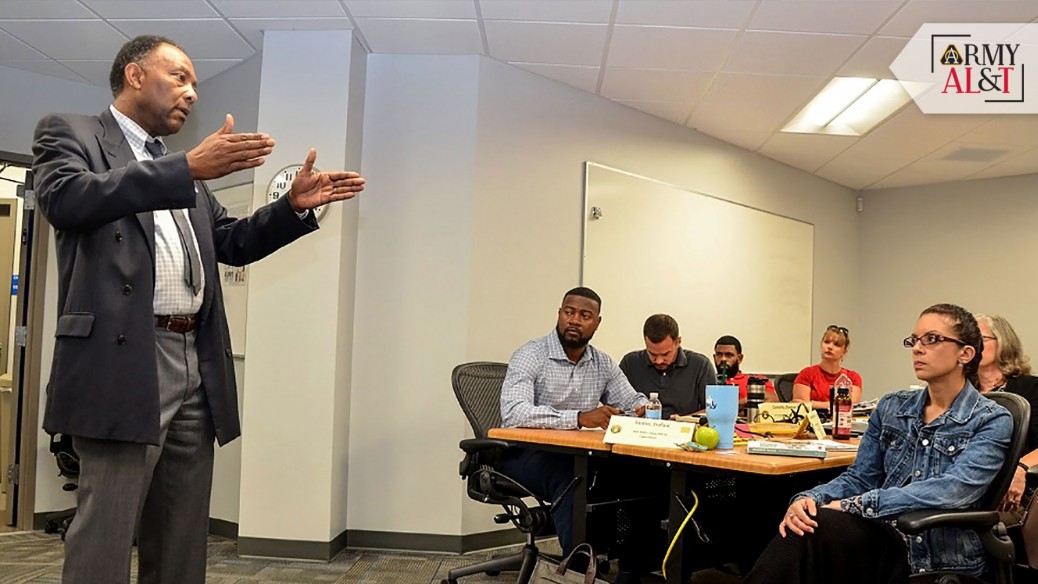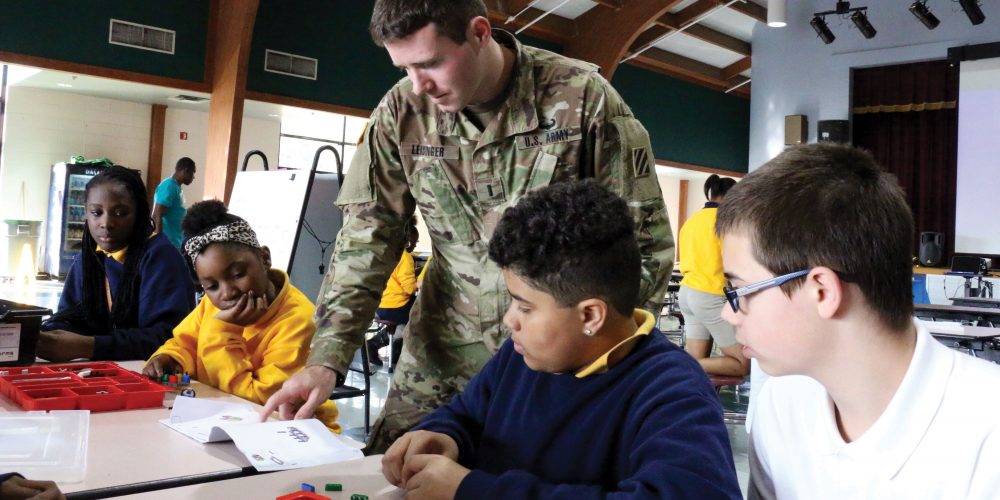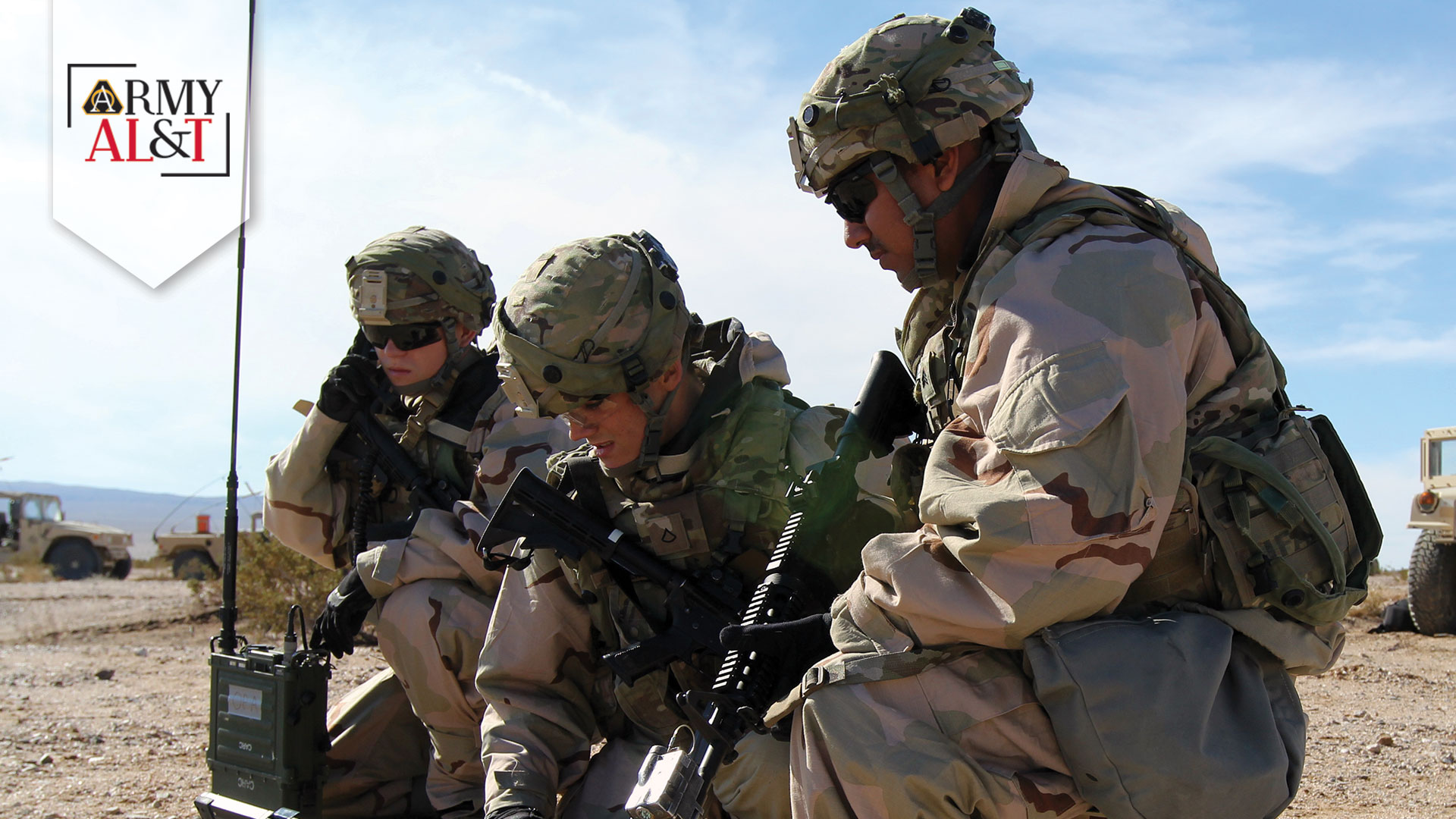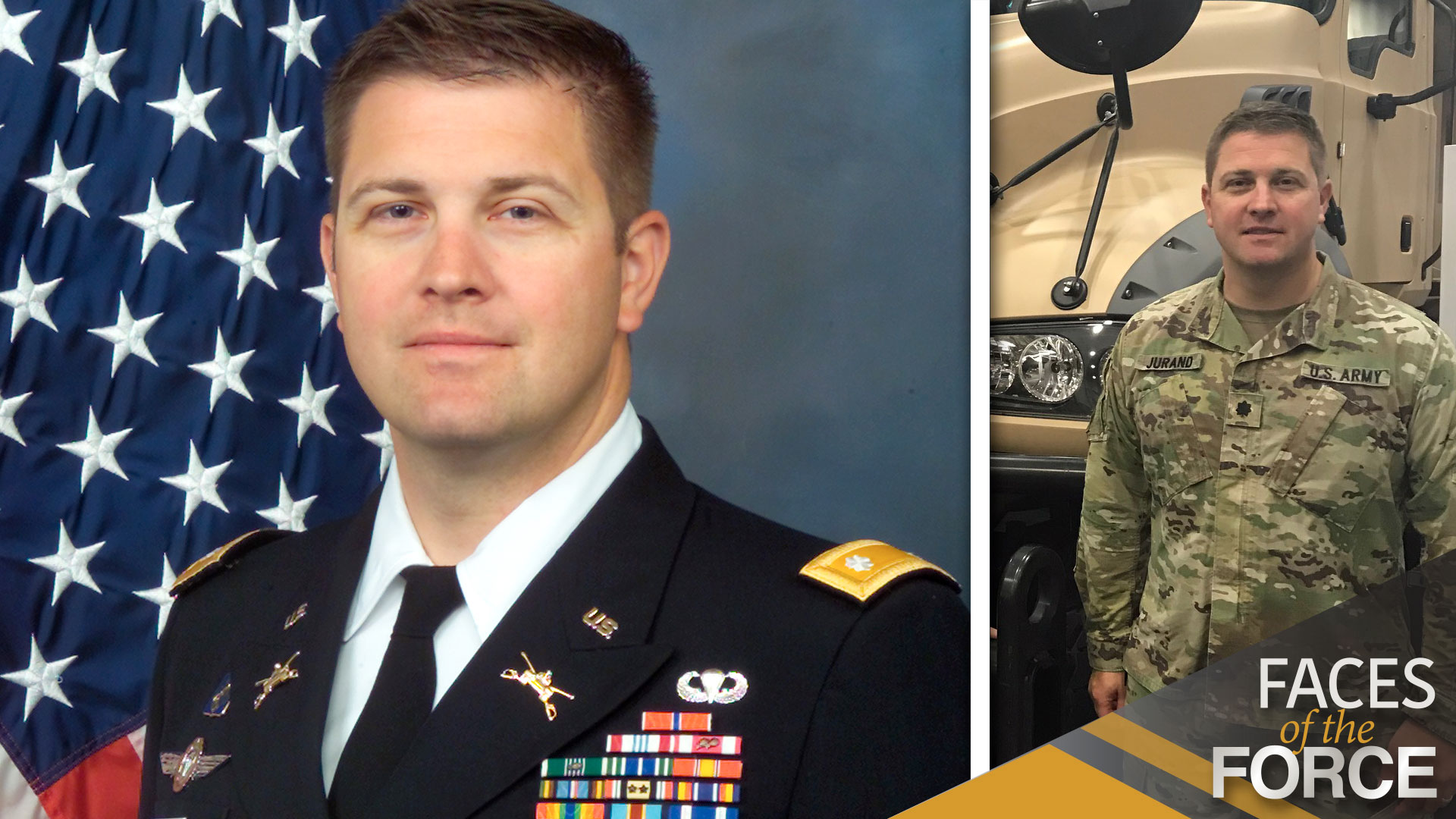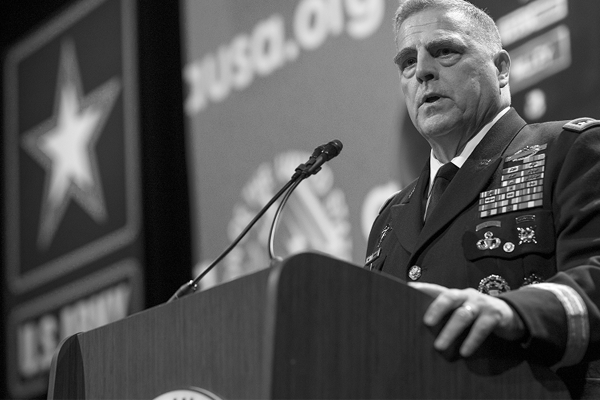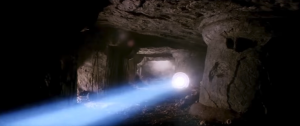Military catastrophes teach IDEAL students about strategic planning and leadership.
by Debra Valine
Desert One, the 1980 attempt to rescue 52 American hostages in Iran, failed. America’s Delta Force, formed just three years earlier, lost eight men, seven helicopters and a C-130.
Task Force Smith, the first U.S. Army ground maneuver unit to enter combat in Korea, in July 1950, was supposed to be a show of strength to delay North Korean troops advancing near Osan. Some 150 American infantrymen were killed, wounded or missing. The North Koreans were delayed only seven hours.
In Tunisia’s Kasserine Pass, the U.S. Army experienced defeat in its first engagement with German troops during World War II. German Field Marshal Erwin Rommel and his Afrika Korps broke through an Allied defensive position Feb. 20, 1943, killing more than 1,000 American troops and taking hundreds of prisoners.
Robert Moore, deputy to the commanding general of the U.S. Army Security Assistance Command (USASAC), used these examples to illustrate the need for strategic planning and leadership, during the Army Acquisition Workforce’s Inspiring and Developing Excellence in Acquisition Leaders (IDEAL) course Aug. 31 at the University of Alabama in Huntsville. The six-month course, designed for Army civilians at GS-11 through GS-13, prepares participants to lead people and teams effectively.
Moore spoke to 31 workforce members during the course, explaining that the lessons learned from those three events show that strategic planning and better preparation would have helped to successfully accomplish the missions.
“All the things you have been studying are caught up in these three events,” Moore said. As strategic planners looking at the current fight (now – 2025), the next fight (2026 – 2035) and the future fight (2036 – 2050), use lessons learned from these events to help make sure those kinds of things do not happen again, he advised.
He used USASAC as an example of the importance of building a team, walking the class through the USASAC hierarchy and the worldwide partners it takes for the foreign military sales mission to succeed. USASAC, a subordinate command of the U.S. Army Materiel Command, develops and manages all foreign military sales and security assistance programs for the Army, to build partner capacity, support combatant command engagement strategies and strengthen U.S. partnerships.
“As a leader, you are a team of teams,” Moore said. “You do not do this by yourself. As you work and plan, it is about bringing your team together. You have to look at where you are today and where you want to be tomorrow. As you plan, it has to be a collaborative effort. There has to be a culture of trust, teamwork and partnerships.”
Moore reminded the group of the importance of the Army values and the Army Civilian Corps Creed. “These are not new to you. I know you have seen them before. These are values to instill in employees, personal traits to which all employees should aspire and a code of conduct to follow; it’s about doing the right thing.”
There are various attributes of leaders, he said:
- Seers—Individuals who are “living in the future,” who possess a compelling vision of “what could be.”
- Architects—Those who are adept at building systems that elicit contribution and facilitate collaboration.
- Connectors—Those with a gift for spotting the “combinational chemistry” between ideas and individuals.
- Mentors—Those who give power away rather than hoard it.
- Guardians—Vigilant defenders of core values and enemies of expediency.
- Bushwhackers—Those who clear the trail for new ideas and initiatives by chopping away at the undergrowth of bureaucracy.
Moore gave some tips for senior leaders, starting with instituting a reading program to enhance leadership skills and maintain currency in functional areas. He recommended a few of his personal favorites: “The Hard Hat,” by Jon Gordon; “Start with Why,” by Simon Sinek; and “Make Your Bed,” by Adm. William H. McRaven.
Other tips include: “Focus on the objective, not the obstacles,” he said. “Incentivize organizational objectives. Understand what is going on with areas of operation, but engage at your level and above. Build relationships and networks. Don’t accept the status quo. How can that process, operation, etc., be improved? Be ruthless in managing your time. Don’t confuse activity with results, be at crucial meetings and briefings, and don’t get captured by the trivial. And think, ‘What’s good for the Army,’ versus ‘What’s good for me.’ ”
One of the challenges Moore said he had to overcome as a leader was confidence in himself. “You have to believe you can do it.”
For more information, go to https://asc.army.mil/web/career-development/programs/inspiring-and-developing-excellence-in-acquisition-leaders-ideal/.
DEBRA VALINE is a public affairs specialist with PROJECTXYZ Inc., working in the Command Information Office of USASAC at Redstone Arsenal, Alabama. Previously, she was the chief of public affairs for the U.S. Army Engineering and Support Center in Huntsville. She holds a B.S. in psychology from the University of Maryland, University College.

